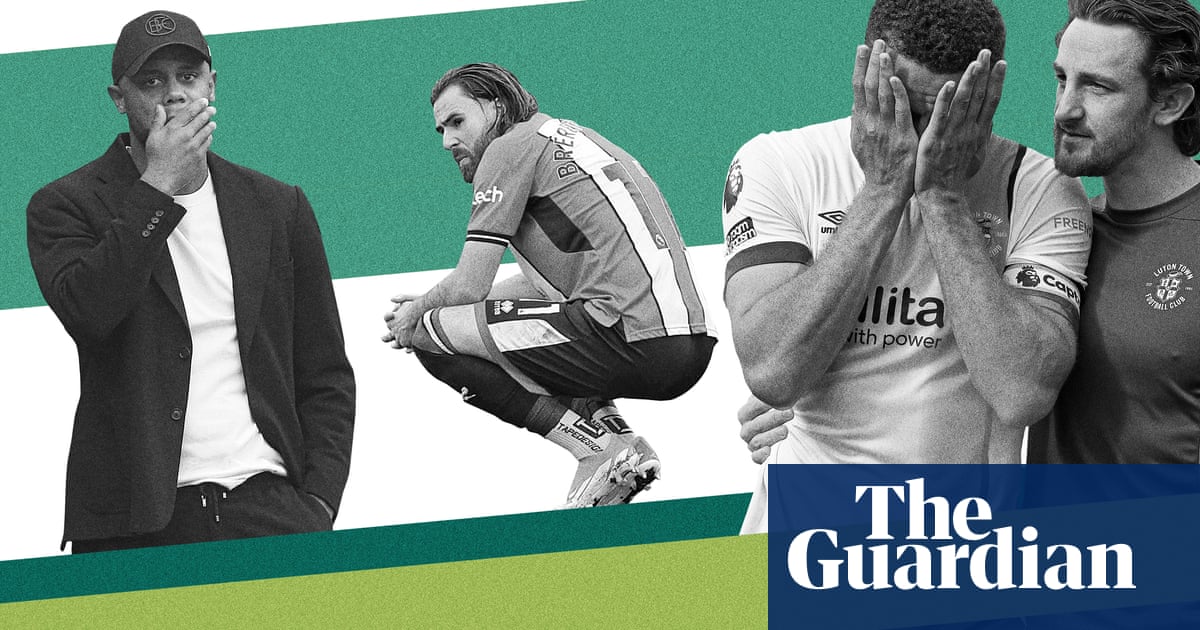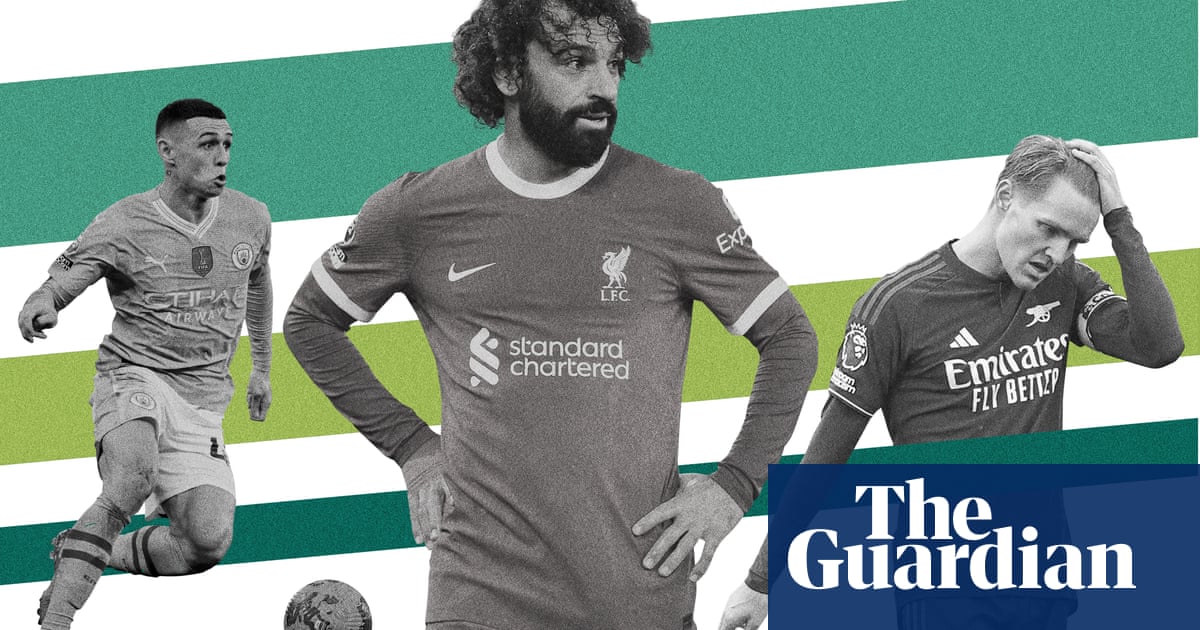
It is late at night when the four hobbits arrive at the Brandywine Bridge. They are shocked to find it barred and they have to plead with the Shirriffs to let them in. The Shire has changed since they went away, trees chopped down, old buildings swept aside, the inns closed. Sandyman’s Mill has been replaced by an ugly new building, full of noisy machinery that pollutes the air and the river. This is not the homecoming they have dreamed of.
Merry blows the horn given him by Éowyn of Rohan and they raise the Shire then scour it but, still, there is a sense of anticlimax. After everything they have been through on Mount Doom, there is an unavoidable bathos about such mundane concerns and, after a time, Frodo, still grappling with the physical and psychological consequences of his quest, departs, granted passage to the blessed realms of Valinor.
It is midwinter when the five Argentinian World Cup winners arrive back in the Premier League. It is cold and wet and a darkness has settled upon the land. Matches seem to arrive in no set pattern: a Carabao Cup tie here, a league fixture there, then a trip to some lower-division opponent in the FA Cup. Hapless cloggers kick them. Scots and Swedes and Nigerians all seem to have points to prove. There is endless discussion of points and tables and qualification for European competition. After the operatic finale in Doha, can the Argentinians be blamed if none of it seems to matter much, if they look at the mundane squabbles of the Premier League and find themselves struggling to engage?
The scenes in Buenos Aires on Tuesday were extraordinary. Almost five million people, 10% of the entire Argentinian population, turned out to greet the World Cup winners home. Too many, as it turned out, and the victory parade had to be aborted, the bus abandoned for a helicopter. The old certainties are always heartening; of course the Argentinian Football Association couldn’t organise a booze-up on a broad boulevard. There were various shots of players smoking cigars and glugging red wine from sawn-off plastic bottles. And why not? What is football about if it is not about celebrating the greatest glory the game can bring?
But how do those players return to civilian life, to the petty concerns of the everyday? Alexis Mac Allister, 24 on Christmas Eve, has been given two weeks off by Brighton, which is surely right: how could anybody flip from playing a key role in a World Cup win to a tricky away game at Southampton? Mac Allister’s is the most intriguing case: there is something wonderful about a Brighton player being world champion but it also means, however good Brighton were in the early part of the season, if anybody can still remember that, chatter about his future is inevitable. For him, January will surely be full of rumours and offers – which of course will only make reintegration harder.
Emi Martínez, the dark lord of the penalty shootout, is 30. Aston Villa may be his peak, although Bayern are apparently considering him as a replacement for Manuel Neuer, who is 37 and broke his leg in a skiing accident after his return from Qatar. Martínez has a new manager to adjust to in Unai Emery. Perhaps there will be another big shootout in his future and more gamesmanship to deploy. But there’s a realistic chance that, for him, everything peaked last Sunday.
Cristian Romero and Lisandro Martínez, both 24, are approaching their peak, both playing for emerging sides for whom Champions League qualification is far from certain. Martínez replied to a message of congratulation from Scott McTominay by saying: “We go for the next one,” but, improved as Manchester United have been this season, winning a trophy with them may be difficult.
Julián Álvarez, 23 next month, is young and obviously enormously talented. After the official celebrations in Buenos Aires, he went back to his home village of Calchín in Córdoba, where he paraded through the streets on the back of a fire engine, siren blaring. He can realistically dream of league titles and Champions Leagues, of glories in his future. But he has started only three league games so far this season; the priority for him at Manchester City is finding a way to play alongside Erling Haaland.
And it’s not just the winners. How will Hugo Lloris react to the disappointment of losing in the final? Will Harry Kane be haunted by his penalty miss against France? Is Kevin De Bruyne extra-driven after Belgium’s group-stage exit, but if so can that last? How will Fabian Schär respond after his nightmare against Portugal? Are Bernardo Silva and Bruno Fernandes seething after Portugal’s quarter-final exit to Morocco?
This is unknown territory. World Cup hangovers affect different players in different ways and determining the general impact is difficult. But that there is an impact seems hard to dispute. Before Qatar, there had been five World Cups this century and in four of the seasons that have followed them, the points total accrued by the champions has been down on the year before. The only exception is 2014-15 when Chelsea gained a point more than City had the year before – the totemic power of José Mourinho’s second season in his second stint at the club and three key signings overriding the after-effects of a World Cup.
But usually there’s a month for players to reset after a tournament; this time there is a matter of days. Some players will be given extra time off but some will plunge straight back in, with the transfer window an additional factor, games taking place as players who have impressed at the World Cup look to negotiate new deals. There are a lot of random factors at play this January.
The assumption is that, particularly with Gabriel Jesus injured, Arsenal will fall away and Manchester City will stroll to the title. But the season is barely a third done. There is still the Carabao Cup and the FA Cup, not to mention Europe, still more than five months until a proper break. The prospect is mildly enticing but mainly exhausting; there is an awful lot of football between now and the end of the season.
Whatever has happened in Mordor, in the Shire, life goes on.












